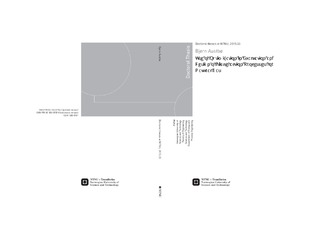| dc.description.abstract | Liquefied natural gas (LNG) is a fast growing energy carrier suitable for transport of
natural gas when the distance from source to market is long and/or the volumes are
moderate. In order to liquefy the natural gas, and thereby reduce its volume, energy
demanding low-temperature refrigeration over a wide temperature range is required.
Hence, energy efficient designs depend on small temperature differences in heat
transfer.
Over the years, many process concepts have been proposed for liquefaction of natural
gas, with different advantages and disadvantages. While development of LNG
processes for a long time was concerned primarily with increased capacity and energy
efficiency, the emergence of new applications such as remote gas and floating
operations have put focus also on properties such as safety, environmental impact,
compactness, operability and flexibility.
For all applications, optimization is essential for fair comparison of different process
concepts, in order to minimize cost, energy use and environmental impact. Due to
characteristics of the liquefaction processes and the rigorous thermodynamic models
required for practical feasibility of the design, optimization of LNG processes is a
complex problem. In order to accommodate this challenge, the focus of this work has
been to improve the optimization problem formulation through use of thermodynamic
analysis and insight, with the objective of enabling rigorous and robust optimization of
both simple and complex process concepts.
In this work, the refrigeration processes have been modelled with a commercial
process simulation tool using cubic equations of state. Optimization has been
performed using a sequential quadratic programming algorithm. A stochastic search
algorithm (simulated annealing) has also been tested. The observed performance was,
however, better for the deterministic search method. Processes studied in this project
include single mixed-refrigerant process, single and dual nitrogen expander processes,
pure-refrigerant cascade processes and a dual mixed-refrigerant process.
Optimization studies of nitrogen expander processes have been carried out both with a
simplified process model assuming perfect gas behaviour of the refrigerant and a
rigorous process model using a cubic equation of state. Comparison of the results
indicated agreement between the models only for a limited number of cases. In the
majority of the case studies, a better solution was found for the rigorous model
accounting for the non-idealities of the refrigerant.
The intermediate pressure levels in multi-stage compression with intercooling have
been optimized for the case of perfect gas behaviour and constant isentropic efficiency.
For the case of different suction temperatures in the different compression stages, the
results indicate that the optimal intermediate pressure levels are characterized by
uniform discharge temperatures for the compression stages rather than uniform
pressure ratios. A heuristic rule for the optimal intermediate pressure in multi-stage
real gas compression has also been proposed. For a single mixed-refrigerant cycle this
was proven to generally provide high accuracy.
The influence of the choice of decision variables and bounds on the optimization
search performance has been illustrated for optimization of pure-refrigerant cascade
processes. Compared to a fairly obvious choice of variables, a set of decision variables
based on process characteristics was found to give significant improvement in the
success rate of the optimization search.
Exergy analysis of cascade refrigeration processes have been used to illustrate the
interaction between the different refrigeration cycles in a cascade. The results
demonstrate that the solution that provides the smallest compression power in a single
cycle not necessarily coincides with the solution that gives the smallest power
consumption for the overall process.
Based on these findings, an approach for design and optimization of complex cascade
processes has been proposed as an alternative to simultaneous optimization of all
variables. In the suggested approach, the load distribution between the different cycles
in the cascade is optimized in an outer loop, while the different refrigeration cycles are
optimized sequentially in an inner loop starting from the lowest temperature level. The
principles of the procedure have been illustrated for a dual mixed-refrigerant process.
Studies on the influence of constraint formulations for optimal trade-off between
operating and investment costs in LNG process design have proven the inadequacy of
the common approach with a minimum temperature difference constraint. A case study
presented for a single mixed-refrigerant process illustrated that significant savings in
energy use could be realized by optimal distribution of heat transfer driving forces. | nb_NO |
